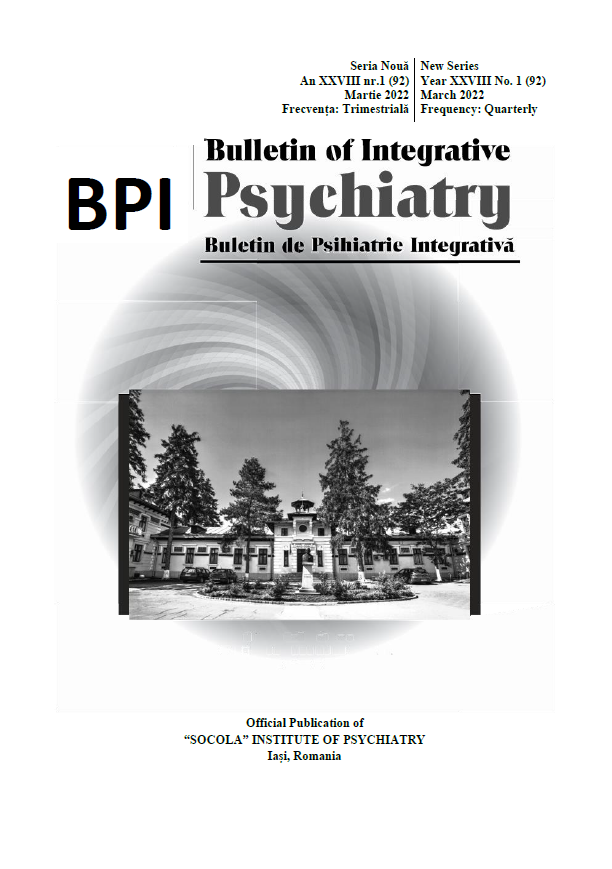Clinical, evolutionary and differential diagnostic features of alcoholism in women
Clinical, evolutionary and differential diagnostic features of alcoholism in women
Author(s): Valentin Oprea, Diana Guranda, Cristina BacalâmSubject(s): Library and Information Science, Substance abuse and addiction, Health and medicine and law
Published by: Editura Sedcom Libris Iasi
Keywords: Alcoholism; women; evolutionary features; risk factors;
Summary/Abstract: According to recent research, drinking among women is a major clinical and individual problem. However, alcoholism in women has received less attention in research. Rapid progression of alcohol induced physiological, psychosocial effects in women is associated with higher morbidity and mortality. The purpose of this study was to investigate the clinical and evolutionary age-related features of alcoholism in women. The research sample included 28 women aged 20 to 65 diagnosed with mental and behavioural disorders due to use of alcohol, and were undergoing addiction treatment. The method used to collect the data was the interview and survey according to the Glossary of standardization of symptoms and syndromes in alcoholism and alcoholic psychosis. The data was examined using the cluster methodology. The findings of the study describe the onset of alcohol use, the pattern, and the overall evolution. There are differences in drinking patterns between younger and older women, as well as biological changes in the context of alcoholism. Women in the 51-65 age range had better psychological performance, as well as a higher educational and professional level. Younger women exhibit no interest in work, a limited motivational sphere, and predisposition to anxiety. Older women showed awareness and adherence to treatment. In the development of female alcoholism, the psychogenic side is more prominent than the sociocultural one, thus emphasizing the need for an individual and gender-specific therapeutic approach. Suggestions for improving treatment effectiveness for younger women are made, as well as future research directions.
Journal: Buletin de Psihiatrie Integrativa
- Issue Year: 92/2022
- Issue No: 1
- Page Range: 73-81
- Page Count: 9
- Language: English

